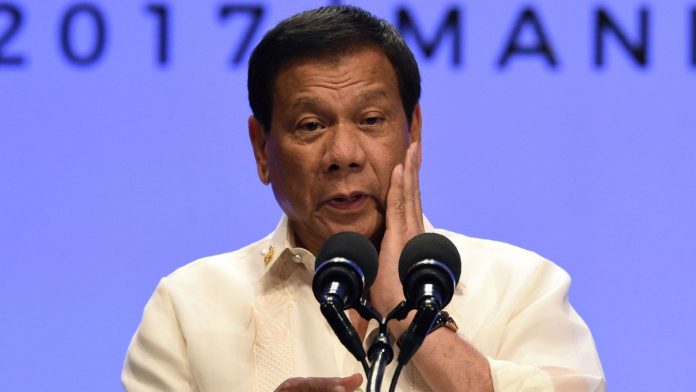
MANILA – More than half or 63 percent of Filipinos want the Duterte administration to address inflation or the continuous price increases in basic commodities, while only 3 percent want the government to focus on changing the 1987 Constitution.
This is based on the Pulse Asia survey on Urgent National Concerns conducted from Sept. 1 to 7, based on a sample of 1,800 registered voters aged 18 years and above. The poll has a ±2 percent margin of error for national estimates, ±6 percent for Metro, ±3 percent for the rest of Luzon, and ±5 percent each for Visayas and Mindanao.
The concern about unabated price increases is common across all income classes of ABC, D and E. Inflation was the primary concern of 65 percent in Class D and 60 percent in Class E.
More than half of the richest segment in Class ABC or 52 percent are also bothered the most by the inflation.
The same Pulse Asia survey showed the Duterte administration’s net approval rating in addressing inflation nosedived into negative territory at -24 percent.
The government’s net approval rating in reducing poverty is 11 percent.
Government initiatives in improving/increasing the pay of workers got a better net approval score of 32 percent, while efforts at creating more jobs and defending the integrity of the country against foreigners got 43 and 45 percent net approval ratings, respectively.
Other top concerns
For 50 percent of the respondents, improving or increasing workers’ pay is behind the top national concern,while 32 percent are rooting for reducing poverty, 30 percent for creating more jobs, and 26 percent for fighting graft and corruption in government.
Rounding up the top 10 urgent concerns are fighting crime (23 percent), peace (14 percent), stopping the destruction and abuse of environment (13 percent), reducing the amount of taxes paid (12 percent), and law enforcement regardless of influence (11 percent).
The Pulse Asia survey results came just a month after the country registered its nine-year high inflation rate of 6.4 percent in August due to higher prices of rice, vegetables, electricity, and operation of private vehicles.
The government has stepped up its rice importation while President Rodrigo Duterte has issued an administrative order removing non-tariff barriers on agricultural products to address inflation. These steps were only done this month even if inflation has been spiking higher than government estimates since May.
The Duterte administration’s pet project of changing the Constitution to install a federal government, however, landed at the bottom of Filipinos’ concerns at a mere 3 percent of the respondents.
The Duterte administration is envisioning a federal government by establishing independent regions, each with the authority to manage its resources and craft its laws, including taxation.
Under the federal set up, each of the at least 17 regions or federal states will retain 80 to 85 percent of their locally generated income while the remaining 15 to 20 percent will be subsidized by the national government through the Internal Revenue Allotment scheme.
The proponents of the measure, however, have yet to figure out how to divide the country’s existing regions.
The Pulse Asia survey was conducted at a time when President Duterte issued Proclamation 572 voiding the amnesty given to former mutineer and his staunch critic Sen. Antonio Trillanes IV.
It was also the same time when Duterte visited Israel and Jordan and made a remark that rape is frequent in his hometown of Davao City because there are many beautiful ladies there.
He also called Vice President Maria Leonor “Leni” Robredo incompetent.
At same time, the economic managers estimated the cost of shifting to federalism at P131 to P253 billion. The House of Representatives passed TRABAHO bill, the second package of tax reforms of the Duterte administration which seeks to cut corporate income taxes from 30 to 20 percent while rationalizing fiscal incentives by removing supposedly redundant fiscal perks given to businesses.
The TRABAHO bill is packaged as a generator of jobs, but authors of the measure have so far no estimates on how many jobs will be created once the bill is enacted. (GMA News)







